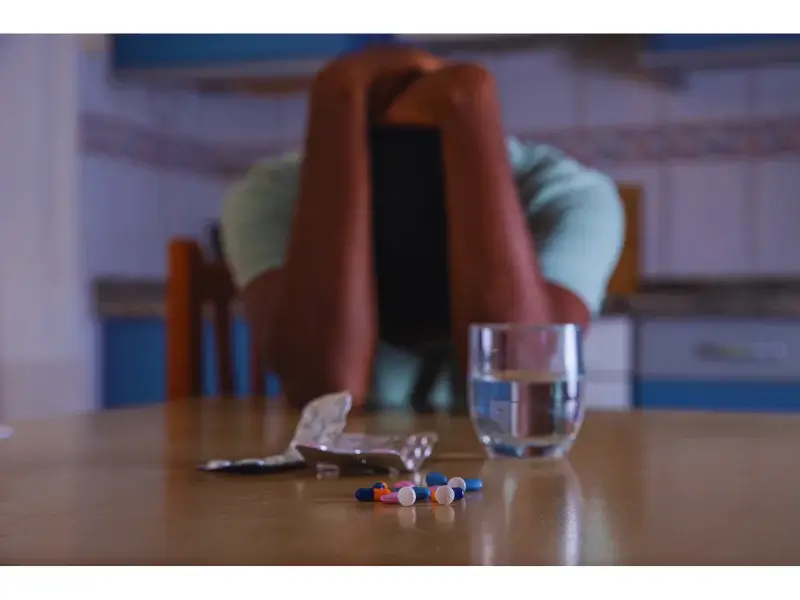Addiction and mental health challenges are often intertwined, with one condition exacerbating the other.
Research shows that nearly half of those with a substance use disorder also have a co-occurring mental health disorder, such as depression or anxiety.
Addiction can worsen mental health symptoms, while untreated mental health conditions often lead individuals to self-medicate with substances.
Integrated treatment approaches, which target addiction and mental health together, have been shown to lead to better long-term outcomes.
Early intervention and comprehensive care are key to helping individuals regain control, manage both conditions, and achieve lasting recovery.
The Link Between Addiction and Mental Health
The Co-occurrence of Substance Use Disorders and Mental Illness
Studies show that there is a significant overlap between substance use disorders and mental illnesses.
According to the National Institute on Drug Abuse, nearly half of individuals with a substance use disorder also have a mental health disorder.
This co-occurrence is known as dual diagnosis, and it complicates treatment and recovery.
The symptoms of addiction and mental health disorders can be similar, such as impulsivity, poor decision-making, and mood instability, which makes diagnosing and treating both conditions at the same time more difficult.
These issues often feed into each other, with substance use acting as a way to cope with untreated mental health issues.
How Mental Health Issues Can Lead to Substance Abuse and Vice Versa
Many individuals use substances as a form of self-medication.
For example, someone struggling with anxiety or depression may turn to alcohol or drugs to numb their emotions.
Unfortunately, this coping mechanism often worsens the mental health issues over time, creating a cycle of dependence and distress.
Similarly, those with substance use disorders may develop mental health problems due to the chemical changes drugs or alcohol can cause in the brain.
Conditions like depression, anxiety, and PTSD can be triggered or made worse by prolonged substance abuse.
It becomes clear that addressing both issues together is critical for successful treatment and recovery.
The Role of Psychiatric Support in Addressing Dual Diagnosis
Identifying Dual Diagnosis: Signs and Symptoms to Watch For

Identifying dual diagnosis in adults can be difficult, especially when symptoms of mental health issues overlap with those of substance abuse.
Signs of neurodevelopmental disorders in adults, such as ADHD, are often mistaken for symptoms of addiction.
For instance, impulsivity, difficulty with concentration, and mood swings are common in both conditions.
Adult neurodevelopmental disorder symptoms, such as trouble with executive function or poor impulse control, may be misinterpreted as the result of drug use.
Identifying neurodevelopmental issues in adults is essential for treating underlying conditions that contribute to addiction.
Psychiatric professionals are trained to look for these subtle signs and differentiate between addiction symptoms and those linked to other mental health conditions.
The Importance of a Comprehensive Treatment Approach
A comprehensive treatment plan is critical for individuals with dual diagnosis.
Simply treating one condition while ignoring the other can lead to relapse or inadequate recovery.
Psychiatric support is necessary to address both the addiction and the underlying mental health conditions.
This might include therapy for mental health issues, medication for disorders such as depression or ADHD, and behavioral interventions to help manage addiction.
A holistic approach ensures that all aspects of a person’s well-being are considered, improving the chances of long-term success.
Integrated treatment plans have been shown to lead to better outcomes for individuals with dual diagnosis.
Strategies for Effective Treatment of Addiction and Mental Health Challenges
Integrative Treatment Plans: Combining Medication, Therapy, and Support
Effective treatment for both addiction and mental health challenges requires an integrative approach.
Medication can be used to stabilize symptoms of mental health conditions, such as anxiety, depression, or ADHD, while therapy helps individuals work through the emotional and behavioral aspects of addiction.
Cognitive-behavioral therapy (CBT) has been shown to be particularly effective for treating both addiction and mental health disorders.
In addition, group therapy and support networks play a crucial role in helping individuals understand that they are not alone in their struggles.
Psychiatric support ensures that patients receive comprehensive care tailored to their unique needs, which increases the likelihood of successful treatment.
Setting Realistic Goals and Milestones in Recovery
Setting realistic goals is a cornerstone of recovery from both addiction and mental health challenges.
Many individuals with dual diagnosis feel overwhelmed by the process of recovery, which can lead to frustration and relapse.
Psychiatric support can help break down the recovery process into manageable steps, making it easier for individuals to track their progress.
With guidance from a mental health professional, individuals can set short-term and long-term goals that are achievable, building their confidence and motivation along the way.
The support of a psychiatrist or therapist can help patients focus on their recovery, without becoming discouraged by setbacks.
Overcoming Stigma: Encouraging Open Conversations About Mental Health and Addiction
The Impact of Stigma on Seeking Help
Stigma remains one of the biggest barriers to seeking help for addiction and mental health issues.
Many individuals feel ashamed or embarrassed to reach out for support, especially when they are dealing with both conditions.
This stigma can prevent people from seeking the psychiatric support they need, leaving them to struggle in silence.
It’s quite common that those who experience stigma are less likely to seek help, which can prolong their suffering and make recovery more difficult.
Reducing stigma is a critical component of improving access to mental health care and addiction treatment.
How to Support a Loved One Struggling with These Challenges

Supporting a loved one with addiction and mental health challenges can be difficult, but it is crucial for their recovery.
Offering empathy, understanding, and encouragement can make a significant difference in their journey toward healing.
Avoiding judgment and helping them access psychiatric support is essential.
Encourage your loved one to reach out for professional help, whether it be through therapy, psychiatric evaluations, or addiction counseling.
Your support can provide the emotional foundation they need to face these challenges head-on and find the strength to recover.
Get the Support You Need for Addiction and Mental Health Challenges at CNS Center AZ
Get the support you need for addiction and mental health challenges with CNS Center AZ.
Our psychiatric care plays a crucial role in helping individuals address both addiction and underlying mental health issues, such as neurodevelopmental disorders.
With a comprehensive treatment plan tailored to each person, we can guide you toward sustainable recovery.
Early intervention and the right support strategies can make all the difference in overcoming struggles and leading a fulfilling life.
Understanding the deep connection between addiction and mental health is essential for
breaking the cycle.
If you’re facing challenges with addiction and mental health, CNS Center AZ is here to help.
Our team offers the support you need to address both addiction and any underlying mental health concerns, including neurodevelopmental disorders.
We know that everyone’s situation is unique, so we create treatment plans that are personalized to your needs.
Reach out to CNS Center AZ today for the support you deserve.






